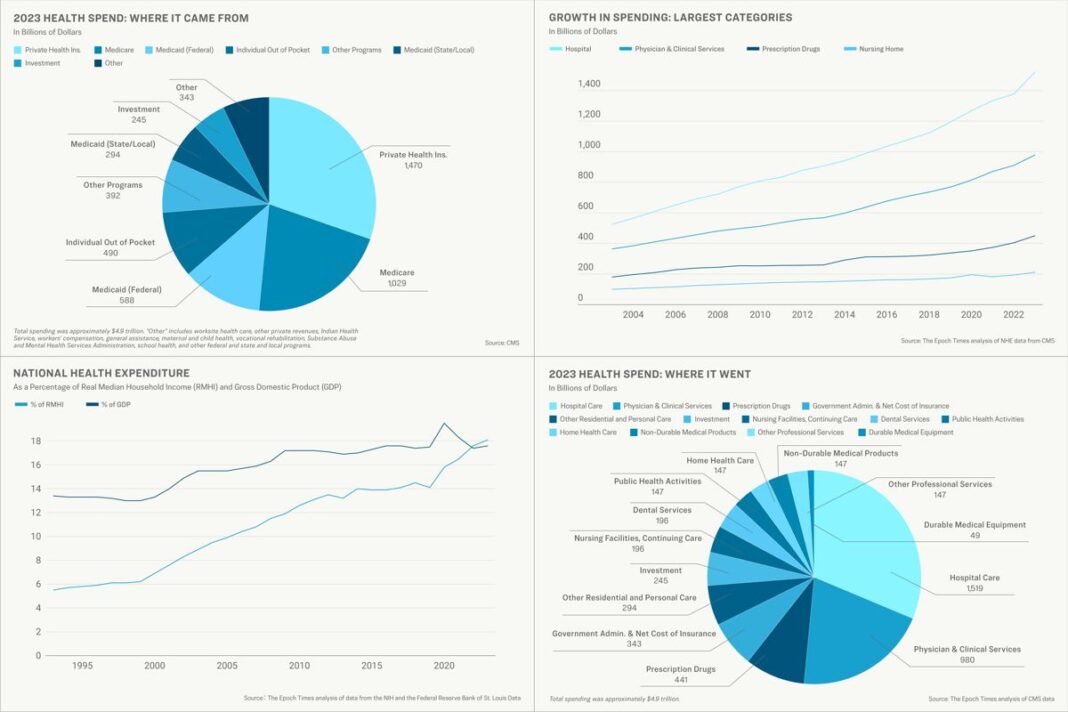Three primary factors drive the rapid rise in health care spending. Consumers can change the main one.
Americans spend a lot on health care, more than any peer nation, and the cost is rising faster than nearly every measure of the U.S. economy.
The National Health Expenditure—the total amount paid for health care through public and private means—has risen faster in recent decades than inflation, household income, the gross domestic product (GDP), the population, and even the price of housing.
Americans collectively spent $4.9 trillion on health care in 2023, six times more than on national defense. No other country spends this much. As a percentage of GDP, the United States spends one-third more than Germany and France and more than double that of China.
Americans are not healthier than people in comparable nations, according to leading health care indices, and they do not live as long.
“We’re wealthy but sick,” Jackson Hammond, a senior policy analyst at Paragon Health Institute, told The Epoch Times.
The American health system is complex, so there are multiple reasons for rising costs. Chief among them is the increasingly poor health of the population, experts say.
Here’s an overview of American health care spending, why it’s so high, and one change that, according to experts, would certainly bring costs down.
The Spending
Americans spent an average of $1,500 apiece on out-of-pocket medical expenses in 2023. That’s $6,000 for a family of four. But that’s the tip of the iceberg. Total spending was 10 times that amount: $14,570 per person, more than $58,000 for a family of four.
Some of that money came from employers who paid all or part of employee health insurance premiums and from other third-party payers. But most came from taxpayers. Federal, state, and local governments contributed more than half of the dollars spent on health care in the United States.
The federal government spent more than $1.8 trillion on health care in fiscal year 2023. The budget deficit was $1.7 trillion that year.
Most health care dollars, 51 percent, went to hospitals and outpatient providers such as doctors and laboratories. Prescription drugs accounted for about 9 percent.
Spending has increased rapidly. Out-of-pocket spending grew by 7.2 percent in fiscal year 2023. Payments for hospital services increased by more than 10 percent, and prescription drug spending increased by 12 percent.








